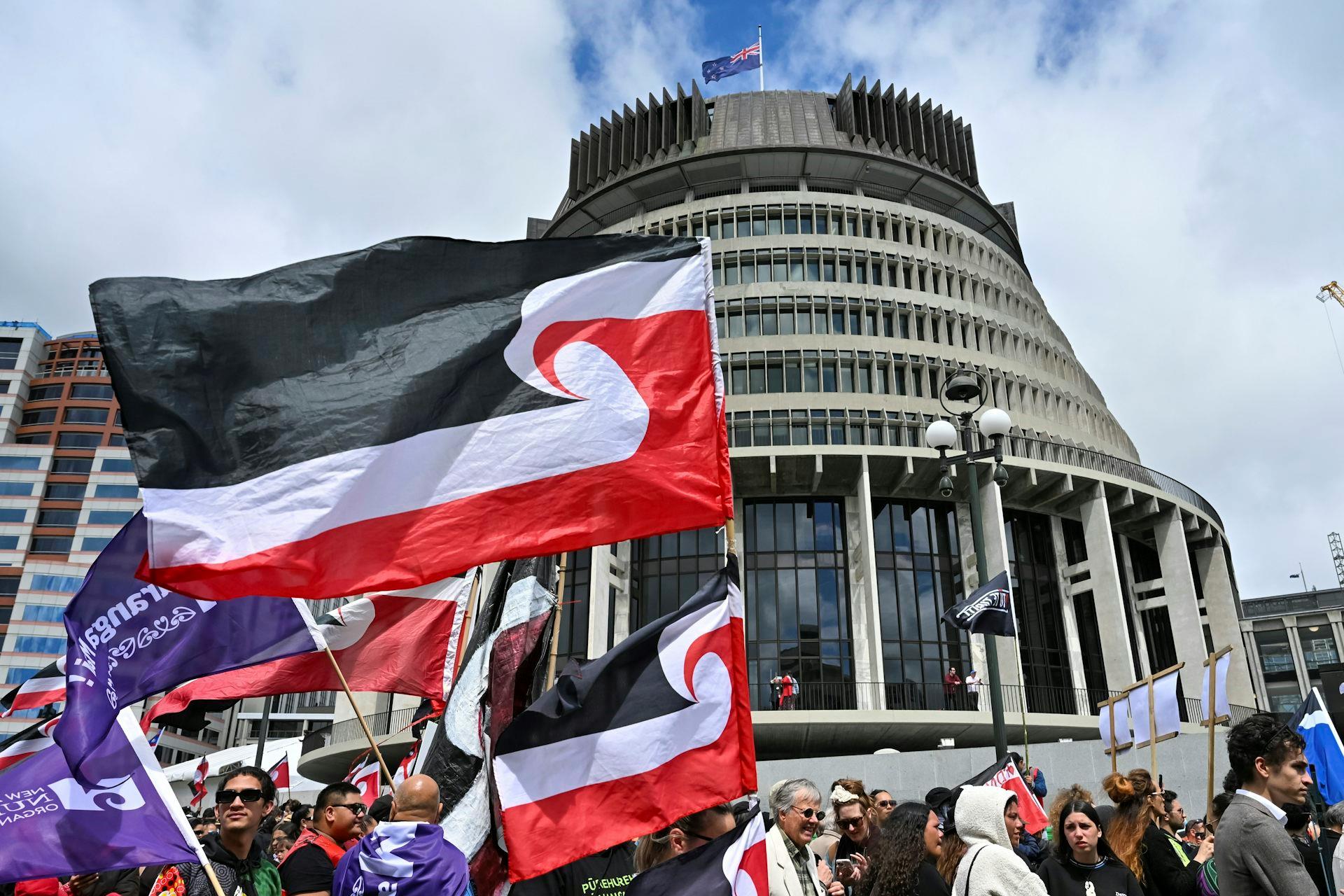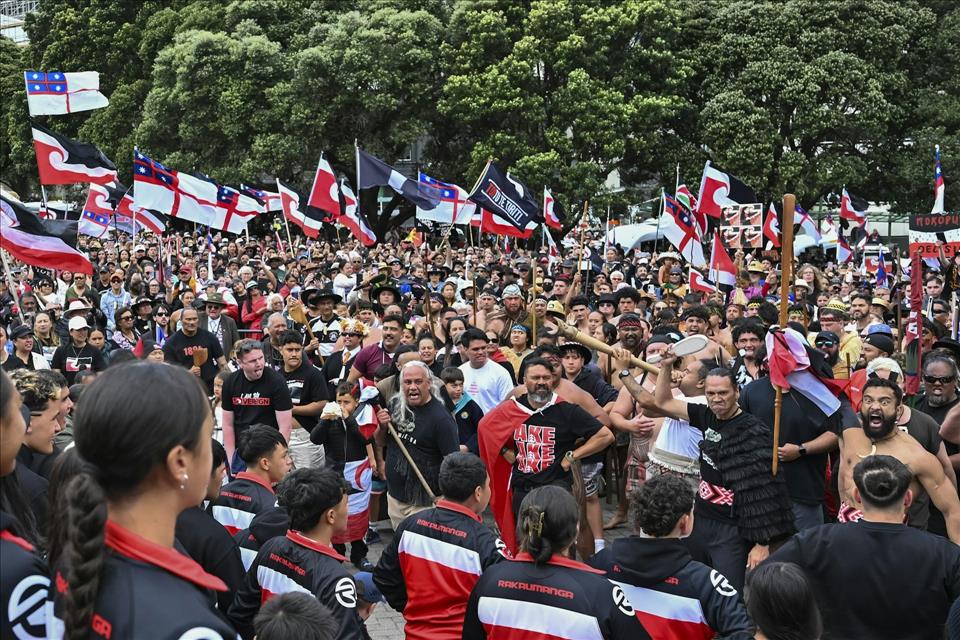
The Māori Ward Vote In New Zealand Contains Important Lessons For Canada
But local elections recently held in New Zealand offer an important cautionary tale for Canada, where treaty rights remain contested terrain and Indigenous self-determination is often misunderstood or politicized.
In New Zealand's October 2025 local elections, voters in 24 of 42 municipalities voted to remove their Māori wards - seats dedicated to Indigenous Māori voters - by 2028. The wards were designed to guarantee the representation of Māori in local government decision-making processes.
Read more: Guaranteed Māori representation in local government is about self-determination - and it's good for democracy
While seeming to reverse progress toward Indigenous representation at the municipal level, the larger story is that the national government forced local councils to hold these polls regardless of whether their community wanted them - and more New Zealanders nationwide voted (by 54 to 46 per cent) to keep rather than scrap their Māori wards.
Yet despite record Māori participation and some urban gains, rural majorities largely voted against the wards.
Māori representationThe first lesson for Canada is on designing electoral and governance systems that include Indigenous people in local decision-making processes. Until recently, Māori representation on local elected bodies was exceedingly low at about four per cent nationwide.
This problem gained prominence in the mid-2000s as part of a broader push for legislative reform to reflect Te Tiriti o Waitangi, considered New Zealand's founding constitutional document.
In its 2010 report, the New Zealand Human Rights Commission identified Māori representation in local government as a top race relations priority, warning“unless positive steps are taken, Māori representation in local government will continue to languish well below the proportion of Māori in the population.”
While there have been reserved seats for Māori voters in parliamentary elections - Māori electorates - going back to 1867, until recently it was rare for local councils to implement Māori wards.
Legislation since 2002 allows councils to create Māori wards, although few were able to do so due to a unique petition and plebiscite requirement that permitted voters to often overturn them.
The Labour government in 2021 revised the Local Electoral Act to remove this requirement for polls on Māori wards since they weren't imposed on any other types of local government wards. The local government minister at the time, Nanaia Mahuta, called the plebiscite provision“fundamentally unfair to Māori.”
This change led to a surge in Māori wards, so that today Māori representation on local bodies is much closer to the population share of around 17 per cent. But in 2024, the new right-coalition government reversed this move, framing Māori wards as an undemocratic form of race-based representation and forcing all local authorities that had enacted Māori wards since 2021 to put the issue to voters.

Thousands of people gather outside New Zealand's parliament in Wellington in November 2024 to protest a proposed law that would redefine the country's founding agreement between Indigenous Māori and the British Crown. The bill was overwhelmingly defeated a few months later. (AP Photo/Mark Tantrum) 'One law for all'
A referendum is generally not a good way to determine the interests of minorities. As was the government's intent, Māori wards became another flashpoint in New Zealand's ongoing debates over treaty rights, perceptions of societal fairness and equality and views regarding Māori culture.
Over the roughly month-long local election period through Oct. 11, the ACT Party - the coalition's right flank - ran local candidates and campaigned alongside groups like Hobson's Pledge using slogans such as“one law for all.”
Read more: Māori wards: how the Hobson's Pledge campaign relies on a 'historical fiction'
The campaign to divide and sow doubt about Māori intentions featured on controversial billboards displaying Māori individuals without their consent. Meanwhile Labour, the Greens and several Māori and ally-led grassroots organizations advocated keeping Māori wards as consistent with the treaty and principles of democratic equity.
For their part, most mayors and councillors spoke to the practical benefits of including Māori elected representatives in local decision-making.
ACT Party leader David Seymour stands in New Zealand Parliament in Wellington in November 2024. (AP Photo/Charlotte Graham-McLay) Rural versus urban divides
The district of New Plymouth (population 58,000) can be considered a microcosm of the recent referendums, reflecting tensions between progressive urban voters and conservative rural communities.
Although three Māori councillors were elected, voters narrowly choose (55 to 45 per cent) to abolish their Māori ward for the next election in 2028. The local campaign was especially divisive, with one mayoral candidate reportedly facing death threats over his support for keeping that council's Māori ward.
Still, the presence of three Māori councillors, two of whom were elected by voters at large, signals grassroots support for inclusive representation.
Mount Taranaki is seen from New Plymouth, New Zealand. (Enjo Smith/Flickr), CC BY
Dinnie Moeahu, who has served on council in a district-wide seat since 2019, argued this was a remarkable transformation given that just 17 per cent of his community supported Māori wards in a 2015 referendum.
As New Zealand continues to navigate its treaty commitments, the challenge will be to bridge these divides.
Here as well, Aotearoa offers lessons for Canada, especially for municipal governments that may lack even a basic understanding of their obligations to Indigenous communities and where local residents and officials are often indifferent to treaty claims until in a situation of crisis.
Dialogue, not polarizationThe Māori ward plebiscites indicate that while institutional reforms for Indigenous representation are vital, meaningful change cannot be sustained without broad public understanding and trust.
Only when settler communities have genuinely engaged with colonial histories, the shared significance and obligations of treaty rights and the human capacity for empathy, can we achieve the foundation for meaningful equality.
New Zealand offers evidence that this is happening on the ground, in many creative and de-centred ways. Especially vital are interventions to build understanding among Pākehā - the diverse group of people who are white European, particularly of British descent, who have been the beneficiaries of colonization - using practices based in conflict mediation, performance and listening.
The final lesson for Canada is that these efforts call on political leaders at all levels to temper divisive rhetoric, recognizing that inflammatory discourse deepens misunderstanding and hinders progress. Real change begins with education, compassion and a commitment to dialogue over polarization.

Legal Disclaimer:
MENAFN provides the
information “as is” without warranty of any kind. We do not accept
any responsibility or liability for the accuracy, content, images,
videos, licenses, completeness, legality, or reliability of the information
contained in this article. If you have any complaints or copyright
issues related to this article, kindly contact the provider above.


















Comments
No comment